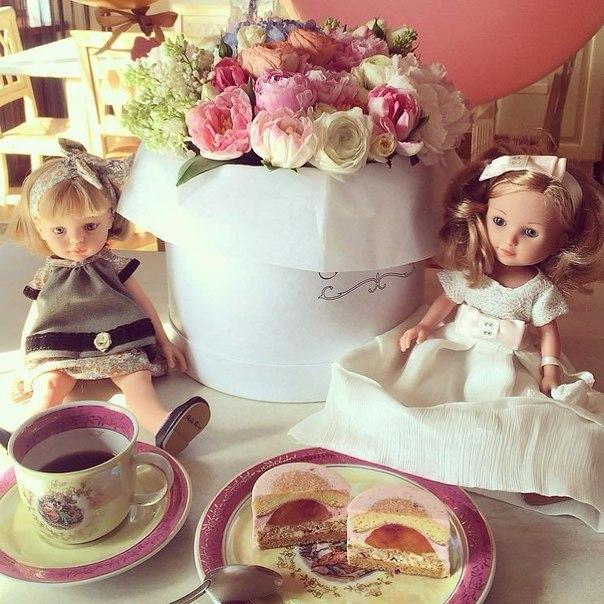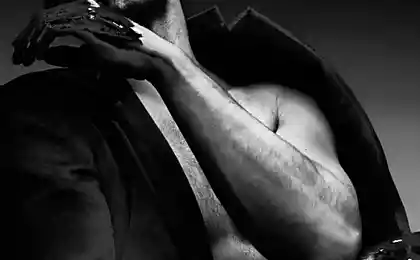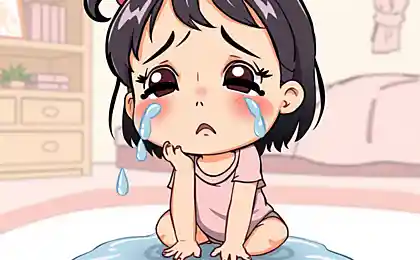6915
Emotional disabilities - victims of family education
Psychologist Marsha Linehan described the so-called "emotional disability". This style of parenting, which in many ways distorts the value of the child's emotions. This leads to the result that a person grows up and does not know how to express themselves and whether the expression of the emotions relevant. And, What are the emotions that are expressed by others and can be trusted to express emotions. For example, people may experience anxiety from the interlocutor smile. For them it will be a threat or a mockery, and not a sign of location and good intentions.
Borderline disorder
Emotional disability does is not only the cause of BPD only. Other disorders may emerge against this background. All again depends on how much the child is predisposed to BPD, whether other harmful factors, such as emotional neglect or abuse of various kinds on the part of parents.
But all the same "border guards" can often be a lot of things to talk about, which of the following occurred in their family.
Often this behavior - a kind of message the child that he must feel in certain situations, what to show and what to hide, what is valuable and what is shameful and unacceptable
.
What's in a parent's behavior could lead to "emotional disability»:
1. "You should not feel».
In fact, if not strange parents often directly or indirectly favor the child's negative feelings in general. You have no right to feel unhappy, because I do everything \ you guy \ you're a person \ daughter are you fine parents, etc.
for you No matter what the child is upset. There are many events in life that are really upset.
For example, you have 3 months to collect puzzles to 5000 pieces, and washed the floor and my mother ... well it happened. Well, you see, that is insulting, even if the mother does not specifically. it is possible to recognize in principle that a person has the right to feel bad and sad, more importantly, that it is possible to solve this problem.
Mom can for example help to assemble the puzzle back. But often in such cases the child say, "How dare you upset because of the ruined puzzle when all my life I spent on you».
In fact, it is a way to cope with his mother's frustration over his embarrassment and raise their self-esteem by taking a larger scale. This is generally correct tactics.
No one makes a person a crappy parent because of the destruction of the puzzle, and you need to understand that in fact parenting much more than the preservation of puzzles in one piece.
Still, the child has a right to be upset because of the fact that his work was destroyed. The ban on emotions, can have a very negative effect on child development.
The same may be with respect to friends, teachers, etc. neighbors which can not be offended.
2. "What do you burst into tears?»
Children cry and it's no secret. Not formed mechanisms that can filter and overestimate the flows of dissatisfaction and frustration. Sometimes, the child just need a short cry, to calm down.
But parents often perceive weeping as a challenge to their parenting, their ability in creating a happy childhood or even signs that the baby will grow
«snotty pacifist." It is quite unpleasant to consider screaming child from this point. So it sounds: "Immediately wipe snot and pull yourself together»
. The manifestation of the extreme feelings - is unacceptable. Of course, well think of it as a child for help to deal with its own stream of negative emotions.
But the mere suppression of feelings is not a good skill. The aged man is not someone who can skillfully suppress negative emotions and who can properly manage and review the unpleasant events in his life. Then these events simply do not cause him the most "extreme emotions».
3. "You're exaggerating».
Children exaggerate. But because only want to attract attention. Because of the perception and understanding of time and events, many events for them seem more personal than it actually is.
They are no longer tied to their favorite toys, high chairs, cups, books, friends, kittens and hamsters.
Many of the events are completely everyday adult children have enormous significance and painted in pretty strong emotions.
Mom did not buy ice cream when it was very "ice cream mood." It is not easy, "the devil and I wanted to", it is a tragedy of the moment, which can be remembered for years to come.
However, parents may simply not recognize the right of the child to assess developments on its own measure. You can not be sad because I do not feel sad.
You can not cry on the cartoon, because I do not pay, says the father. As a result, the child is hampered development of awareness of their own feelings assessment tool.
I'm sad? And I am sad for this, or am I exaggerating? I am glad, and my joy is adequate, maybe I should not be happy?
4. "You're just a liar!»
Various events can be viewed in different ways a child and an adult. This again is due to the peculiarities of perception.
Sad man may seem evil, dog lapdog seem huge dog (in a state of fear, children can evaluate the threatening objects somewhat exaggerated), the distance to the house a huge, time spent with other short ... and indeed playful child can not really see what is happening around .
Even normal intercourse can for the child to have an entirely different meaning. Often the reaction and judgment of the child's parents can be confusing or even discover the truth behind what is happening.
If a parent does not want to recognize some things, or simply does not want the child to raise certain topics, he can blame the child in a lie. Then the child is formed by uncertainty in the assessment of reality and their own opinion about it. It's true or I again want to lie to people?
5. "You are so like your (insert family member's name, which in this context is evaluated negatively)».
Generally, such a comparison can play with your child rather cruel joke. It is not to be like "mama" or "papa" is usually not much negotiated. What does it mean not to be like a father to the boy and be a mother for the girls?
Moreover, such a comparison is often used by parents is not to the point, and in order to relieve the unpleasant emotions and feelings of lack of control over the situation. "You are so like your" takes responsibility for the child's behavior, makes it possible not to take some unpopular measures.
It happens that a grown man, some part of his person is aware of the "it's mom \ father in me said". Where did it come from Daddy? As he, the scoundrel, got through the border of your personality and why there is poaching? when he wants to, and then says, when you do not want to silence. It is a kind of uncontrollable part, blurs the boundaries of the individual.
6. "You have time to be like your sister \ brother \ I was your age already ...»
In fact, this is the message that the child is not good enough for parents and should work on yourself. He confuses parents some by their actions, they do not want to deal with its problems, or already want the child to solve their problems.
Becoming someone else is difficult. From this it is necessary to remake themselves quite seriously, and incorporate a quality that can be completely alien.
Often, such a policy leads to the fact that the child recognizes that his personality and his needs do not matter and a sign of infantilism and defects. It should be one, and only then you will love.
7. "Behave like an adult already».
Children behave like children. They make noise, scream, throw toys, believe in fairies and monsters, it is believed that the pine stick is no worse than Jack Sparrow sword.
Parents bored, parents want to be engaged in and that they do not interfere. Parents often want to think about them better than they really are, so do not blame them at the entrance to the social network of attendants.
What's wrong with the baby? Your childhood, your interests disgusting \ tedious \ shameful \ funny ... Well, when does it end? Adult man goes on to doubt, and whether it is appropriate in general.
Now, if I drop a pen today, then what? I like a fool? If I'm upset because of dried flower in a pot? This is the most shameful childhood plays, which should already be over?
Me 8. "Tell me something good and do not upset».
Sometimes parents avoid feel untenable even in the small. It is therefore not want to hear about what the child's problems. They only want to hear about the good results and achievements.
As a result, the child forms an opinion. What is his problem not interesting, and only upsetting. And so, all you need to keep to yourself, otherwise you will not love.
Moreover, if a person has black stripes occur, it is estimated as a total rejection of society. If you have problems and you are in the last 3 days there is nothing to please my mother, then you have no right to be loved.
9. "You're selfish!».
You know, the children are selfish. Again feature development. If 1 to 3 years old child stronger becomes aware of himself as an individual, separate from others and that he for himself might have something to do, and other people can do for him, it is difficult to explain to him the principles of altruism.
Then, the issue of self-interest as such. A person should think about himself. And every act that parents do not like or does not meet their expectations.
If more "selfish" is used to manipulate when the child want to get the desired behavior, it is quite easy to form the view that the act in their own interests just dirty and unworthy behavior.
As well as people who do so and are not acting in your best interests - such as dirty animals, selfish. You want something? Do not even think about it! Want - it is selfishness. We must do what others want. Only then you will love.
10. "You are too small \ stupid \ weak \ naive to do it»
. Yes, children are. But often it sounds need to control a child's life in such applications. Not all, of which the child is fenced off parents really beyond him.
"Do not even think that you will become an artist \ writer, you have no talent and imagination, you too simple", "Do not even think to enter Baumanku, you are too weak math, pick yourself easier»
. Emotional disability quite distorts the concept of a child that such emotions are normal and that is the normal way of their manifestation.
Even if he subsequently quite successfully functioning in society, then it is often in doubt and anxiety about whether or not he is in certain situations, if it does not cause adequate backlash surrounding if show their emotions or express their opinions or desires.
In extreme cases, this leads to a situation is associated with BPD. There is a sense of his personality, there is no sense of boundaries.
Borderline disorder
Emotional disability does is not only the cause of BPD only. Other disorders may emerge against this background. All again depends on how much the child is predisposed to BPD, whether other harmful factors, such as emotional neglect or abuse of various kinds on the part of parents.
But all the same "border guards" can often be a lot of things to talk about, which of the following occurred in their family.
Often this behavior - a kind of message the child that he must feel in certain situations, what to show and what to hide, what is valuable and what is shameful and unacceptable
.

What's in a parent's behavior could lead to "emotional disability»:
1. "You should not feel».
In fact, if not strange parents often directly or indirectly favor the child's negative feelings in general. You have no right to feel unhappy, because I do everything \ you guy \ you're a person \ daughter are you fine parents, etc.
for you No matter what the child is upset. There are many events in life that are really upset.
For example, you have 3 months to collect puzzles to 5000 pieces, and washed the floor and my mother ... well it happened. Well, you see, that is insulting, even if the mother does not specifically. it is possible to recognize in principle that a person has the right to feel bad and sad, more importantly, that it is possible to solve this problem.
Mom can for example help to assemble the puzzle back. But often in such cases the child say, "How dare you upset because of the ruined puzzle when all my life I spent on you».
In fact, it is a way to cope with his mother's frustration over his embarrassment and raise their self-esteem by taking a larger scale. This is generally correct tactics.
No one makes a person a crappy parent because of the destruction of the puzzle, and you need to understand that in fact parenting much more than the preservation of puzzles in one piece.
Still, the child has a right to be upset because of the fact that his work was destroyed. The ban on emotions, can have a very negative effect on child development.
The same may be with respect to friends, teachers, etc. neighbors which can not be offended.
2. "What do you burst into tears?»
Children cry and it's no secret. Not formed mechanisms that can filter and overestimate the flows of dissatisfaction and frustration. Sometimes, the child just need a short cry, to calm down.
But parents often perceive weeping as a challenge to their parenting, their ability in creating a happy childhood or even signs that the baby will grow
«snotty pacifist." It is quite unpleasant to consider screaming child from this point. So it sounds: "Immediately wipe snot and pull yourself together»
. The manifestation of the extreme feelings - is unacceptable. Of course, well think of it as a child for help to deal with its own stream of negative emotions.
But the mere suppression of feelings is not a good skill. The aged man is not someone who can skillfully suppress negative emotions and who can properly manage and review the unpleasant events in his life. Then these events simply do not cause him the most "extreme emotions».
3. "You're exaggerating».
Children exaggerate. But because only want to attract attention. Because of the perception and understanding of time and events, many events for them seem more personal than it actually is.
They are no longer tied to their favorite toys, high chairs, cups, books, friends, kittens and hamsters.
Many of the events are completely everyday adult children have enormous significance and painted in pretty strong emotions.
Mom did not buy ice cream when it was very "ice cream mood." It is not easy, "the devil and I wanted to", it is a tragedy of the moment, which can be remembered for years to come.
However, parents may simply not recognize the right of the child to assess developments on its own measure. You can not be sad because I do not feel sad.
You can not cry on the cartoon, because I do not pay, says the father. As a result, the child is hampered development of awareness of their own feelings assessment tool.
I'm sad? And I am sad for this, or am I exaggerating? I am glad, and my joy is adequate, maybe I should not be happy?
4. "You're just a liar!»
Various events can be viewed in different ways a child and an adult. This again is due to the peculiarities of perception.
Sad man may seem evil, dog lapdog seem huge dog (in a state of fear, children can evaluate the threatening objects somewhat exaggerated), the distance to the house a huge, time spent with other short ... and indeed playful child can not really see what is happening around .
Even normal intercourse can for the child to have an entirely different meaning. Often the reaction and judgment of the child's parents can be confusing or even discover the truth behind what is happening.
If a parent does not want to recognize some things, or simply does not want the child to raise certain topics, he can blame the child in a lie. Then the child is formed by uncertainty in the assessment of reality and their own opinion about it. It's true or I again want to lie to people?
5. "You are so like your (insert family member's name, which in this context is evaluated negatively)».
Generally, such a comparison can play with your child rather cruel joke. It is not to be like "mama" or "papa" is usually not much negotiated. What does it mean not to be like a father to the boy and be a mother for the girls?
Moreover, such a comparison is often used by parents is not to the point, and in order to relieve the unpleasant emotions and feelings of lack of control over the situation. "You are so like your" takes responsibility for the child's behavior, makes it possible not to take some unpopular measures.
It happens that a grown man, some part of his person is aware of the "it's mom \ father in me said". Where did it come from Daddy? As he, the scoundrel, got through the border of your personality and why there is poaching? when he wants to, and then says, when you do not want to silence. It is a kind of uncontrollable part, blurs the boundaries of the individual.
6. "You have time to be like your sister \ brother \ I was your age already ...»
In fact, this is the message that the child is not good enough for parents and should work on yourself. He confuses parents some by their actions, they do not want to deal with its problems, or already want the child to solve their problems.
Becoming someone else is difficult. From this it is necessary to remake themselves quite seriously, and incorporate a quality that can be completely alien.
Often, such a policy leads to the fact that the child recognizes that his personality and his needs do not matter and a sign of infantilism and defects. It should be one, and only then you will love.
7. "Behave like an adult already».
Children behave like children. They make noise, scream, throw toys, believe in fairies and monsters, it is believed that the pine stick is no worse than Jack Sparrow sword.
Parents bored, parents want to be engaged in and that they do not interfere. Parents often want to think about them better than they really are, so do not blame them at the entrance to the social network of attendants.
What's wrong with the baby? Your childhood, your interests disgusting \ tedious \ shameful \ funny ... Well, when does it end? Adult man goes on to doubt, and whether it is appropriate in general.
Now, if I drop a pen today, then what? I like a fool? If I'm upset because of dried flower in a pot? This is the most shameful childhood plays, which should already be over?
Me 8. "Tell me something good and do not upset».
Sometimes parents avoid feel untenable even in the small. It is therefore not want to hear about what the child's problems. They only want to hear about the good results and achievements.
As a result, the child forms an opinion. What is his problem not interesting, and only upsetting. And so, all you need to keep to yourself, otherwise you will not love.
Moreover, if a person has black stripes occur, it is estimated as a total rejection of society. If you have problems and you are in the last 3 days there is nothing to please my mother, then you have no right to be loved.
9. "You're selfish!».
You know, the children are selfish. Again feature development. If 1 to 3 years old child stronger becomes aware of himself as an individual, separate from others and that he for himself might have something to do, and other people can do for him, it is difficult to explain to him the principles of altruism.
Then, the issue of self-interest as such. A person should think about himself. And every act that parents do not like or does not meet their expectations.
If more "selfish" is used to manipulate when the child want to get the desired behavior, it is quite easy to form the view that the act in their own interests just dirty and unworthy behavior.
As well as people who do so and are not acting in your best interests - such as dirty animals, selfish. You want something? Do not even think about it! Want - it is selfishness. We must do what others want. Only then you will love.
10. "You are too small \ stupid \ weak \ naive to do it»
. Yes, children are. But often it sounds need to control a child's life in such applications. Not all, of which the child is fenced off parents really beyond him.
"Do not even think that you will become an artist \ writer, you have no talent and imagination, you too simple", "Do not even think to enter Baumanku, you are too weak math, pick yourself easier»
. Emotional disability quite distorts the concept of a child that such emotions are normal and that is the normal way of their manifestation.
Even if he subsequently quite successfully functioning in society, then it is often in doubt and anxiety about whether or not he is in certain situations, if it does not cause adequate backlash surrounding if show their emotions or express their opinions or desires.
In extreme cases, this leads to a situation is associated with BPD. There is a sense of his personality, there is no sense of boundaries.
CrossFit: Simple rules of the Athlete's wagon Rich Froning
This is a simple tool to get rid of nail fungus
























